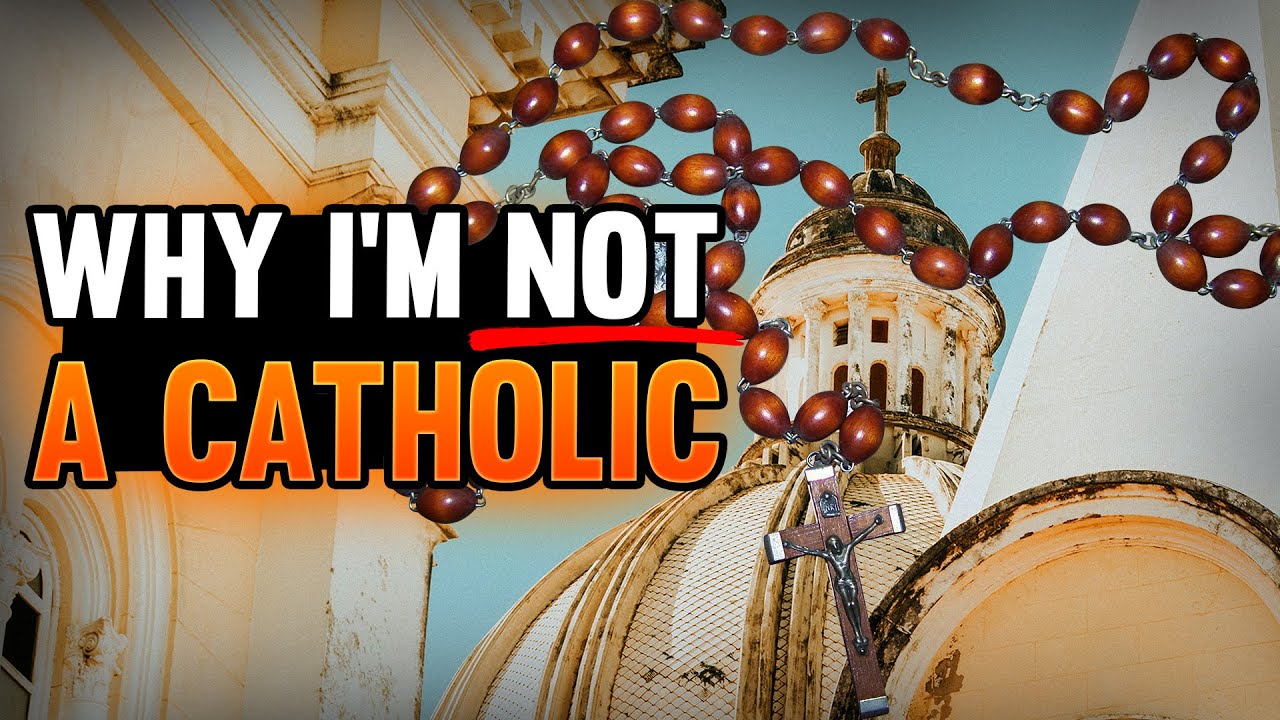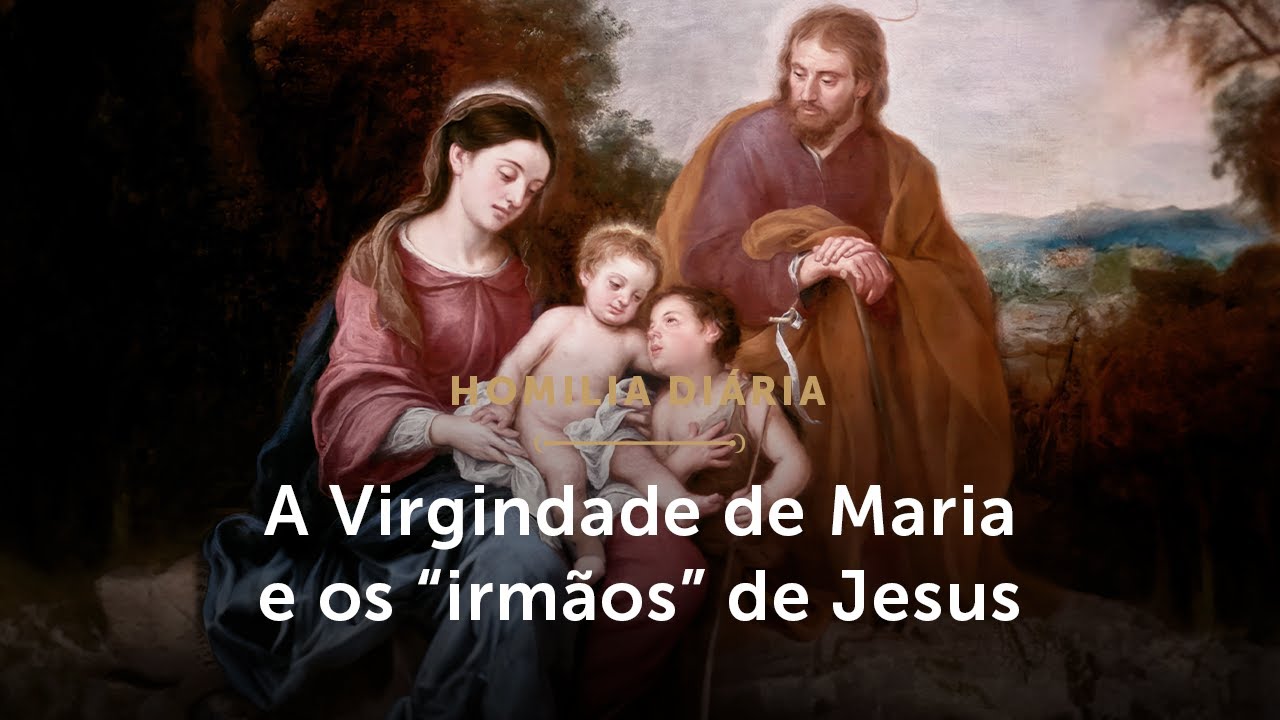What Catholics and Protestants Believe About Mother Mary
Summary
TLDRThe video script captures a theological debate on the Catholic view of Mary, contrasting it with Protestant beliefs. It delves into the Catholic practice of praying to Mary for intercession, which some find uncomfortable, and the Protestant stance that only Jesus is the mediator between God and humans. The discussion touches on the historical Council of Ephesus, the concept of Mary as 'Mother of God,' and the Protestant emphasis on direct prayer to Jesus, bypassing intermediaries. The script also addresses the lack of biblical support for praying to saints or Mary and the potential dangers of straying from this path.
Takeaways
- 😇 The Catholic view on Mary is a significant point of contention, especially regarding praying to and venerating Mary, which some find uncomfortable.
- 🙏 Catholic Doctrine teaches praying to Mary and asking for her intercession, a practice that some Protestants see as conflicting with the Bible's teaching of one mediator, Christ Jesus.
- 📖 The debate centers on the interpretation of Scripture, with some arguing that there is no biblical basis for praying to Mary or the Saints, while others believe in deducing practices not explicitly stated in Scripture.
- 🌟 Mary is considered the Mother of God in Catholicism, a title established by the Council of Ephesus in 431 AD to affirm the divinity of Jesus and counter the Nestorian heresy.
- 🔗 The concept of Mary as a mediator is rejected by some Protestants who believe in direct access to God through Jesus, without the need for intercession by Mary or the Saints.
- 🔑 The difference between latria (worship reserved for God) and dulia/veneration (honor given to Saints and Mary) is highlighted, with Mary receiving hyperdulia due to her unique position.
- 🤔 The script raises questions about the Biblical support for the idea of souls in heaven continuing to make intercession, a concept not explicitly found in the Bible.
- 🔮 Some argue that practices like praying the rosary and asking for Mary's intercession are similar to asking fellow Christians to pray for you, extended to the afterlife.
- 🚫 The script emphasizes the Protestant belief that praying to Saints or Mary is not only extra-biblical but also anti-biblical, potentially leading to spiritual dangers like opening oneself to familiar spirits.
- 🌐 The discussion touches on the broader issue of the diversity within Christianity, including various interpretations and practices related to Mary and the Saints across different denominations.
- 📚 The script concludes with a call to stick to biblical teachings, encouraging Christians to go directly to Jesus in prayer and rejecting practices that seem to deviate from Scripture.
Q & A
What is the main point of contention regarding the Catholic view on Mary discussed in the script?
-The main point of contention is the Catholic practice of praying to Mary and asking for her intercession, which some view as conflicting with the biblical teaching that there is only one mediator between God and humanity, Jesus Christ.
What does the script suggest about the Catholic Doctrine's stance on praying to Mary?
-The script suggests that the Catholic Doctrine teaches not only asking Mary for intercession but also praying to her and even worshiping her, which some individuals find uncomfortable and not in line with the Bible.
What is the biblical argument made against praying through Mary as a mediator?
-The biblical argument is that the Bible states there is one mediator between God and humanity, which is Jesus Christ, and therefore praying through Mary as a mediator is seen as unnecessary and not supported by scripture.
What is the Council of Ephesus mentioned in the script, and why is it significant?
-The Council of Ephesus was a church council in 431 that defined Mary as the 'Mother of God' in response to the Nestorian crisis. It is significant because it established a theological basis for Mary's unique role in Catholic belief.
What is the difference between latria, dulia, and hyperdulia as mentioned in the script?
-Latria is the full adoration of God, dulia is veneration that can be ascribed to saints, and hyperdulia is a higher level of veneration specifically for Mary, because of her unique position as the mother of God.
What does the script imply about the Protestant view on Mary and intercession?
-The script implies that Protestants do not believe in praying to Mary or asking for her intercession, as they believe that such practices are not biblical and that one should go directly to Jesus for intercession.
What is the script's stance on the idea of souls making intercession after they are in heaven?
-The script questions the idea of souls making intercession after they are in heaven, stating that there is no biblical basis for this belief and that it is not a Christian doctrine.
What is the script's view on the use of the term 'Mother of God' in reference to Mary?
-The script suggests that while some may find the term 'Mother of God' to be accurate because Jesus is God, others may prefer to say 'Mother of Jesus' to avoid confusion or theological complications.
What is the script's opinion on the practice of praying the rosary in Catholicism?
-The script expresses discomfort with the practice of praying the rosary, viewing it as a form of praying to Mary rather than through her, which is seen as unnecessary and not biblical.
What does the script suggest about the relationship between Catholics and Protestants on the topic of Mary?
-The script suggests that there is a significant difference in beliefs between Catholics and Protestants regarding Mary, with Catholics viewing her as an intercessor and Protestants believing in direct access to Jesus without intermediaries.
Outlines

This section is available to paid users only. Please upgrade to access this part.
Upgrade NowMindmap

This section is available to paid users only. Please upgrade to access this part.
Upgrade NowKeywords

This section is available to paid users only. Please upgrade to access this part.
Upgrade NowHighlights

This section is available to paid users only. Please upgrade to access this part.
Upgrade NowTranscripts

This section is available to paid users only. Please upgrade to access this part.
Upgrade NowBrowse More Related Video

Catholicism VS Christianity

What is the Orthodox Perspective on Original Sin?

Reforma e Contrarreforma | DEIXA QUE EU DESENHO

How The Bible PROVES The Immaculate Conception

Homilia Diária | Os “irmãos” de Jesus e a Virgindade de Maria (Sexta-feira da 17ª Sem. do T. Comum)

Introduction to the Protestant Reformation: Martin Luther
5.0 / 5 (0 votes)